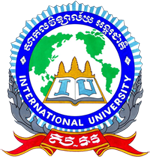I. Description
A general program that focuses on the systematic study of the production, conservation and allocation of resources in conditions of scarcity, together with the organizational frameworks related to these processes. Includes instruction in economic theory, microeconomics and comparative economic systems, quantitative analytical methods, and applications to specific industries and public policy issues.
II. Learning Objectives
An Associate degree in economics can provide the knowledge and training necessary to succeed in a variety of related fields. Unlike finance degree programs, which focus primarily on monetary resources, economics degree programs traditionally address more diverse resources, such as labor, land, machinery, and raw materials. Graduate degrees narrow down the coursework into a specific area of economics, such as the specialties mentioned above.
III. Learning Outcomes
Students graduated from the program will be expected to have knowledge and practical skills in:
- recognizing and appreciating the diversity of views that have historically been expressed or may reasonably exist about economic problems and alternative economic systems and present those views in a coherently written essay.
- identifying compile, interpret, and analyze quantitative economic data by expressing relationships between concepts through graphs, statistical or econometric analysis.
- using microeconomic tools and concepts to address public policy issues such as competition, environmental protection, financial regulation, innovation and intellectual property, labor law, or taxation.
- collecting and integrating information from a variety of sources, assessing its meaning, accuracy, and timeliness; discuss the bias and variance of possible measurement and estimation procedures; and recognize the agendas of points of view of various purveyors of data and analysis.

